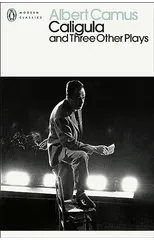Jean-Baptiste Clamence is a soul in turmoil. Over several drunken nights he regales a chance acquaintance with his story. From this successful former lawyer and seemingly model citizen a compelling, self-loathing catalogue of guilt, hypocrisy and alienation pours forth.The Fall (1956) is a brilliant portrayal of a man who has glimpsed the hollowness of his existence. But beyond depicting one man's disillusionment, Camus's novel exposes the universal human condition and its absurdities - and our innocence that, once lost, can never be recaptured ...
Albert Camus
Albert Camus was a French-Algerian writer, philosopher, and journalist known for his contributions to existentialism and absurdism. His most notable works include "The Stranger," "The Plague," and "The Myth of Sisyphus." Camus' writing style is characterized by its clarity, simplicity, and exploration of the human condition in the face of a meaningless universe. He won the Nobel Prize in Literature in 1957 for his powerful and thought-provoking works. Camus' impact on literature can be seen in his ability to capture the essence of existential themes and challenge societal norms. "The Stranger" remains his most famous work, exploring themes of alienation, absurdity, and the search for meaning in a world devoid of inherent purpose.










